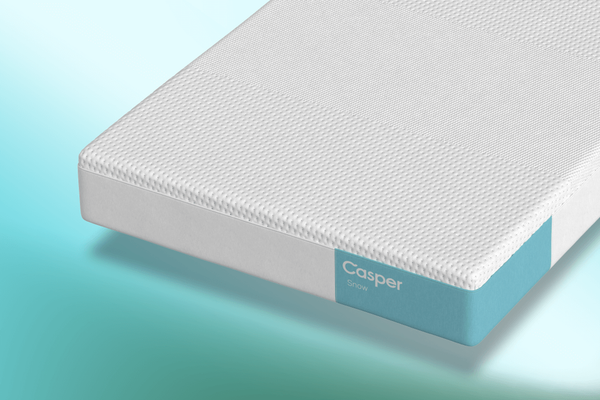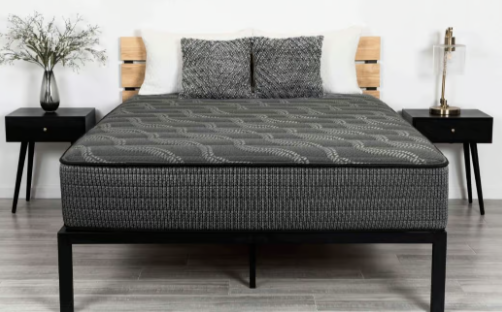
Overview
TL;DR: Establishing a sustainable sleep routine is essential for better health and well-being. Key strategies include setting a consistent sleep schedule, creating a relaxing pre-sleep ritual, optimizing your sleep environment, limiting blue light exposure, being mindful of food and drink, and engaging in regular physical activity. Mindfulness techniques and natural sleep aids can also enhance sleep quality. Prioritize your sleep for improved mental clarity and physical health.
Frequently Asked Questions
1. Why is a sustainable sleep routine important?
2. What are the stages of sleep?
3. What are some strategies to create a sustainable sleep routine?
4. How can mindfulness techniques improve sleep quality?
5. What natural sleep aids can be used to improve sleep?
In today’s fast-paced world, the importance of a good night’s sleep is often overlooked. A sustainable sleep routine fosters not only better health but also enhances the quality of your life. In this article, we will discuss effective strategies to create a sustainable sleep routine that is tailored to your needs, helping you feel refreshed every morning.
Understanding the Basics of Sleep
Before diving into the strategies for establishing a sustainable sleep routine, it’s essential to understand the fundamentals of sleep. Sleep is a natural, recurring state of mind and body, characterized by altered consciousness, relatively inhibited sensory activity, reduced muscle activity, and inhibition of interactions with surroundings.
The Stages of Sleep
Sleep consists of various stages, each serving a unique purpose:
- Stage 1: Light sleep where you transition from wakefulness to sleep.
- Stage 2: The body temperature drops, and heart rate slows down.
- Stage 3: Deep sleep, essential for physical recovery and growth.
- REM Sleep: The stage where dreams occur; crucial for emotional regulation and memory consolidation.
Why a Sustainable Sleep Routine Matters
A sustainable sleep routine can lead to numerous benefits, including improved mental clarity, better physical health, and a stronger immune system. Additionally, consistent sleep can reduce the risk of chronic conditions such as obesity, diabetes, and heart disease. Establishing a routine aids in regulating your body's internal clock, making it easier to fall asleep and wake up at the desired times.
Steps to Create Your Sustainable Sleep Routine
1. Set a Consistent Sleep Schedule
One of the first steps towards creating a sustainable sleep routine is setting a consistent sleep schedule. Going to bed and waking up at the same time every day, even on weekends, helps regulate your body's circadian rhythm, enhancing the quality of your sleep.
2. Craft a Relaxing Pre-Sleep Ritual
Incorporating a pre-sleep ritual is essential for signals your body that it’s time to wind down. Here are some activities you might include in your relaxation routine:
- Reading a book
- Taking a warm bath or shower
- Pursuing gentle yoga or meditation
- Listening to calming music or nature sounds
3. Create a Sleep-Inducing Environment
Your sleep environment plays a critical role in your overall sleep quality. Here are a few tips to optimize your sleeping space:
- Comfortable Bedding: Invest in quality mattresses and pillows that support your sleeping posture.
- Temperature Control: Keep your bedroom cool, ideally between 60-67°F (15-19°C).
- Lights Out: Use blackout curtains to minimize light interference.
- Noise Management: Consider earplugs or white noise machines to drown out background noise.
4. Limit Blue Light Exposure
In our digital age, exposure to blue light from screens can massively disrupt our natural sleep cycles. Try to limit your use of smartphones, computers, and televisions at least an hour before bedtime. If you must use these devices, consider using blue light filters or glasses designed to reduce blue light exposure.
5. Be Mindful of Food and Drink
What you consume, especially in the hours leading up to bedtime, can significantly influence your sleep quality. Here are some guidelines:
- Avoid Heavy Meals: Do not eat large meals or spicy foods close to bedtime.
- Limit Caffeine and Nicotine: Both are stimulants that can keep you awake. Try to minimize their use in the late afternoon and evening.
- Stay Hydrated: However, avoid drinking excessive water right before bed to prevent nighttime bathroom trips.
6. Regular Physical Activity
Incorporating regular physical activity into your daily routine can improve sleep quality. Aim for at least 30 minutes of moderate exercise most days of the week. Be cautious, though — exercising too close to bedtime can have the opposite effect. Aim to finish your workout at least three hours before you turn in for the night.
Understanding Sleep Disorders
Sometimes, despite our best efforts, we may struggle with sleep. Common sleep disorders include insomnia, sleep apnea, and restless leg syndrome. If you find that you regularly have trouble sleeping or feel excessively sleepy during the day, consider consulting with a sleep specialist.
Symptoms of Sleep Disorders
Here are some common symptoms to be aware of:
- Difficulty falling asleep or staying asleep.
- Frequent awakenings during the night.
- Excessive daytime sleepiness.
- Loud snoring followed by pauses in breathing.
Boosting Your Sleep Quality with Mindfulness
Mindfulness techniques can prove beneficial for achieving a restful night's sleep. By learning to manage stress and anxiety through mindfulness, you can create a tranquil mental environment conducive to sleep.
Mindfulness Practices to Try
- Meditation: Practice focused breathing or guided imagery relaxation techniques.
- Progressive Muscle Relaxation: Gradually tense and relax each muscle group in your body to release tension.
- Journaling: Pen down your thoughts and feelings before bed to clear your mind.
Harnessing the Power of Natural Sleep Aids
Incorporating natural sleep aids can also enhance your journey to a sustainable sleep routine. Here are some popular options:
- Herbal Supplements: Consider herbal teas made from chamomile, valerian root, or lavender.
- Aromatherapy: Using essential oils like lavender or cedarwood in your sleep environment can promote relaxation.
- Melatonin: This hormone regulates the sleep-wake cycle and can be taken as a supplement if needed.
Unlocking Your Best Sleep Ever
Creating a sustainable sleep routine is more than just a nightly ritual; it’s a lifestyle choice that can transform your everyday existence. By prioritizing sleep and following the tips outlined in this article, you can achieve a consistent, restorative sleep pattern that boosts your overall health and well-being. Remember, developing such routines takes time and patience, so embrace the journey to better sleep. You deserve it!









